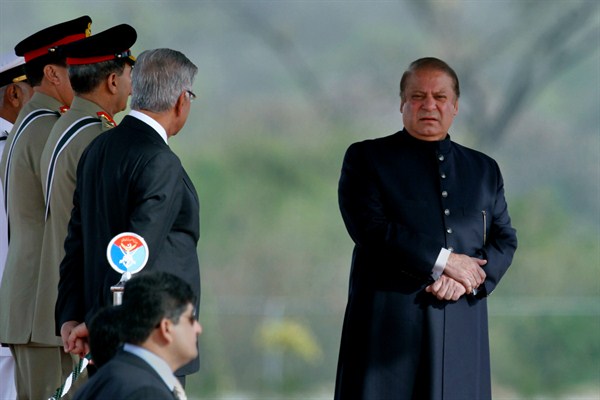The fallout of the so-called Panama Papers, along with rising civil unrest, security challenges, and the expanding role of the military in civilian affairs, have resulted in the most challenging period for Pakistan’s prime minister, Nawaz Sharif, since he took office in 2013. Yet Sharif is likely to survive the current difficulties, given the weak position of the opposition and the military’s lack of interest to force a change in government.
However, Sharif’s longer-term political prospects are less clear. They could be hampered by additional repercussions from investigations into Sharif’s family shielding their money in offshore bank accounts and shell companies, as well as the trajectory of civil unrest, Sharif’s inability to overcome political paralysis, and the extent to which the military’s influence deepens.
Revelations that three of Sharif’s children are among the more than 200 Pakistanis named in leaked documents from the Panamanian law firm Mossack Fonseca have again put the prime minister in the spotlight for tax evasion and financial wrongdoing—issues that led to the dismissal of his government in 1993 during his first tenure as prime minister. Allegations of corruption have stoked public frustration at a time when rates of civil unrest are already elevated, following resistance to unpopular economic reforms and protests from pro-Islamist groups.

